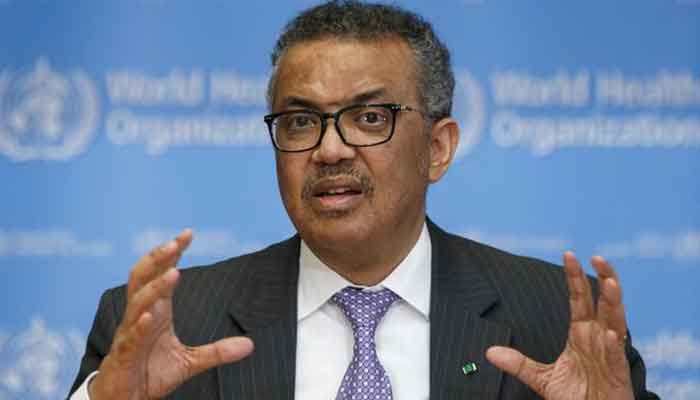COVID-19: WHO chief backs PM Imran Khan’s strategy of balancing life and livelihood
The World Health Organisation chief has once again praised Pakistan's response and supported PM Imran Khan's strategy on COVID-19
September 30, 2020

World Health Organization (WHO) chief Dr Tedros Adhanom Ghebreyesus has once again praised Pakistan’s response to the COVID-19 pandemic and supported Prime Minister Imran Khan’s policy to balance life and livelihood as the country combatted the disease.
The WHO chief, in an op-ed on Tuesday, discussed in detail the international efforts towards fighting the pandemic, remarking that “there are glimmers of hope that encourage us now and in the near future”.
While mentioning Pakistan, Dr Tedros said the country deployed the infrastructure it built up over the many years for polio to combat COVID-19.
Read more: Karachi witnesses spike in COVID-19 cases
Echoing PM Imran Khan’s policy of balancing life and livelihood, the WHO chief said, “the choice is not between controlling the virus or saving the economy; the two go hand-in-hand”.
“Community health workers who have been trained to go door-to-door vaccinating children against polio have been redeployed and utilised for surveillance, contact tracing and care,” he noted about Pakistan.
Dr Tedros noted that the strategy has worked well for Pakistan in suppressing the virus and the economy is also picking up once again.
Pakistan’s coronavirus cases have reached 312,263 with 747 new cases in the last 24 hours while the death toll is at 6,497, according to the National Command and Operations Centre, which oversees the country’s coronavirus policy.
Read more: Worldwide coronavirus death toll surpasses one million
PM Imran’s aide Senator Faisal Javed responded to the remarks saying this is the endorsement of the prime minister’s vision who has always talked about the common people.
“This is what PM Imran Khan has been saying from day one. Along with tackling Coronavirus we need to get the Economy running, control the Hunger, ensure relief to weaker segments of society, especially, labour, daily-wager class and common people remained top priority.”









